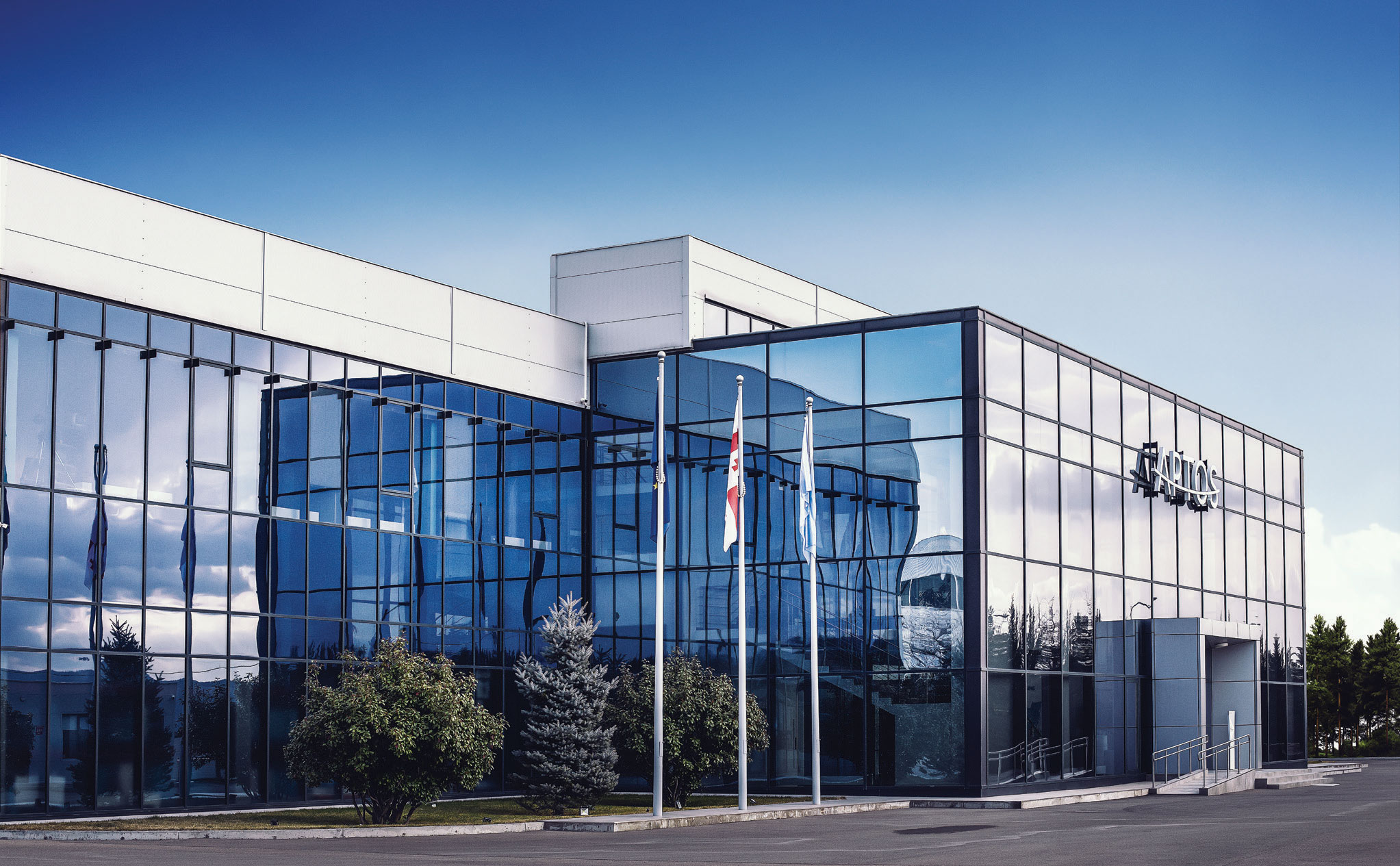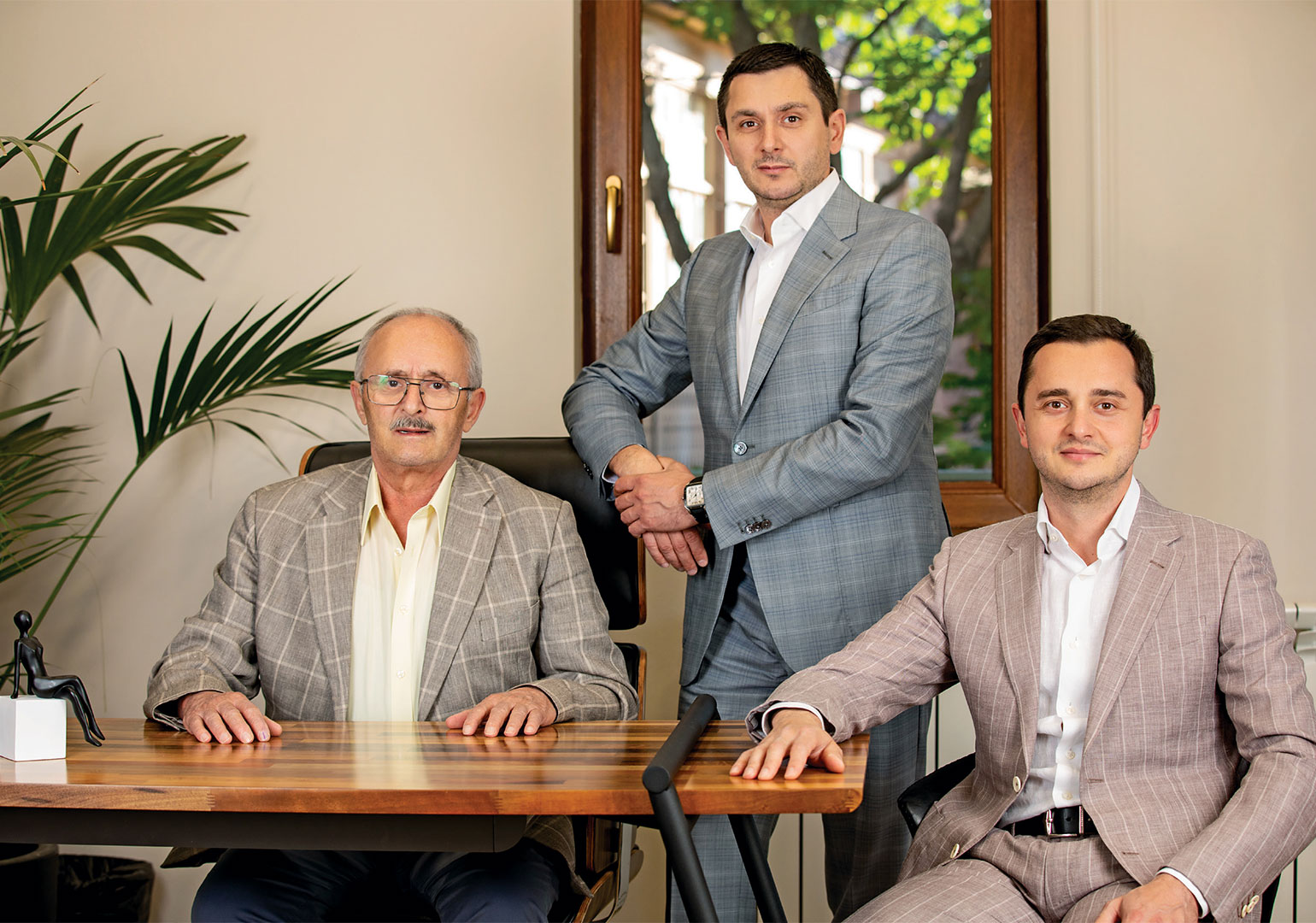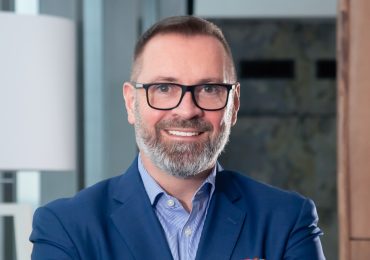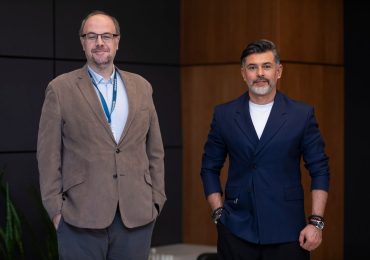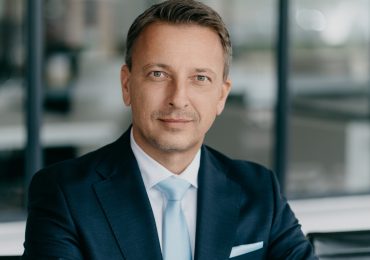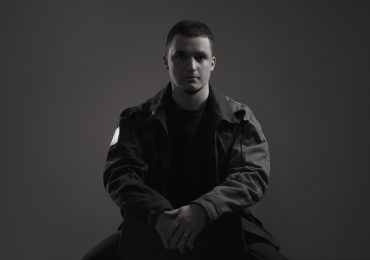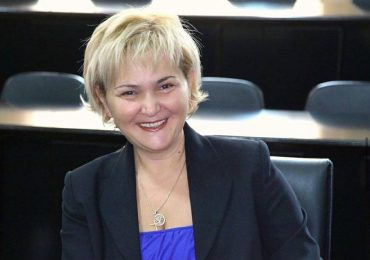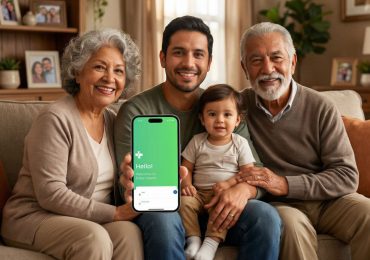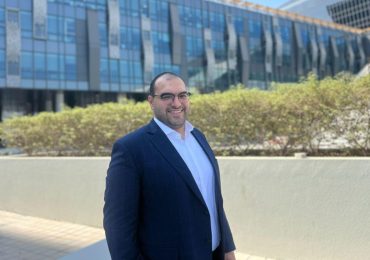Marlen Sulamanidze revolutionized aesthetic medicine with his innovative method. Today, Aptos, the company he founded, is a world leader. He runs the company alongside his sons, George and Konstantin Sulamanidze. Forbes Georgia sat down with them to discuss the company’s history, game-changing invention, and plans for the future.
Dr. Marlen, when and what sparked your interest in plastic surgery?
Dr. Marlen: The turning point in my life came in the seventies while I was still in school. I watched a documentary film featuring Vakhtang Khurtsidze, showing a prominent plastic surgeon at the time performing rhinoplasty on a young girl from a village. This film left a mark on me, igniting a passion for plastic surgery. My uncle was a doctor, and my mother, who also graduated from a medical institute, wanted me to become a doctor. About 80% of my classmates aspired to become doctors, and eventually, I decided to pursue medical studies.
Due to the high number of applicants and rampant corruption, getting into a university in Tbilisi was nearly impossible. My parents could not afford the cost. So, after finishing school, I did not even attempt to enroll in Georgia. Instead, they put me on the Adler train and sent me to Irkutsk. I did not succeed in my first attempt, but I gained admission in my second year and eventually graduated from the medical institute. I then worked as a doctor on a ship in Sakhalin for two years. In 1973, I moved to Kutaisi, Georgia.
At that time, plastic surgery as a specialty did not exist, so I aimed for maxillofacial surgery. I started working as a therapist and was offered a job in the health care department of the Kutaisi Executive Committee. I did everything possible to advance in this field.
During this time, plastic surgery gained popularity, and I had the chance to study with Vakhtang Khurtsidze. Having already worked in Russia, I had the opportunity to familiarize myself with plastic surgery institutions in Kyiv and Moscow. I would travel there to study, and upon returning to Kutaisi, I performed operations. When life in Kutaisi became unbearable in the 1990s, I moved to Moscow with my family. By then, I was a high-ranking specialist, making it easy to find a job. I lived there until 2007, defended my thesis, explored new fields, and introduced minimally invasive surgery with Aptos.
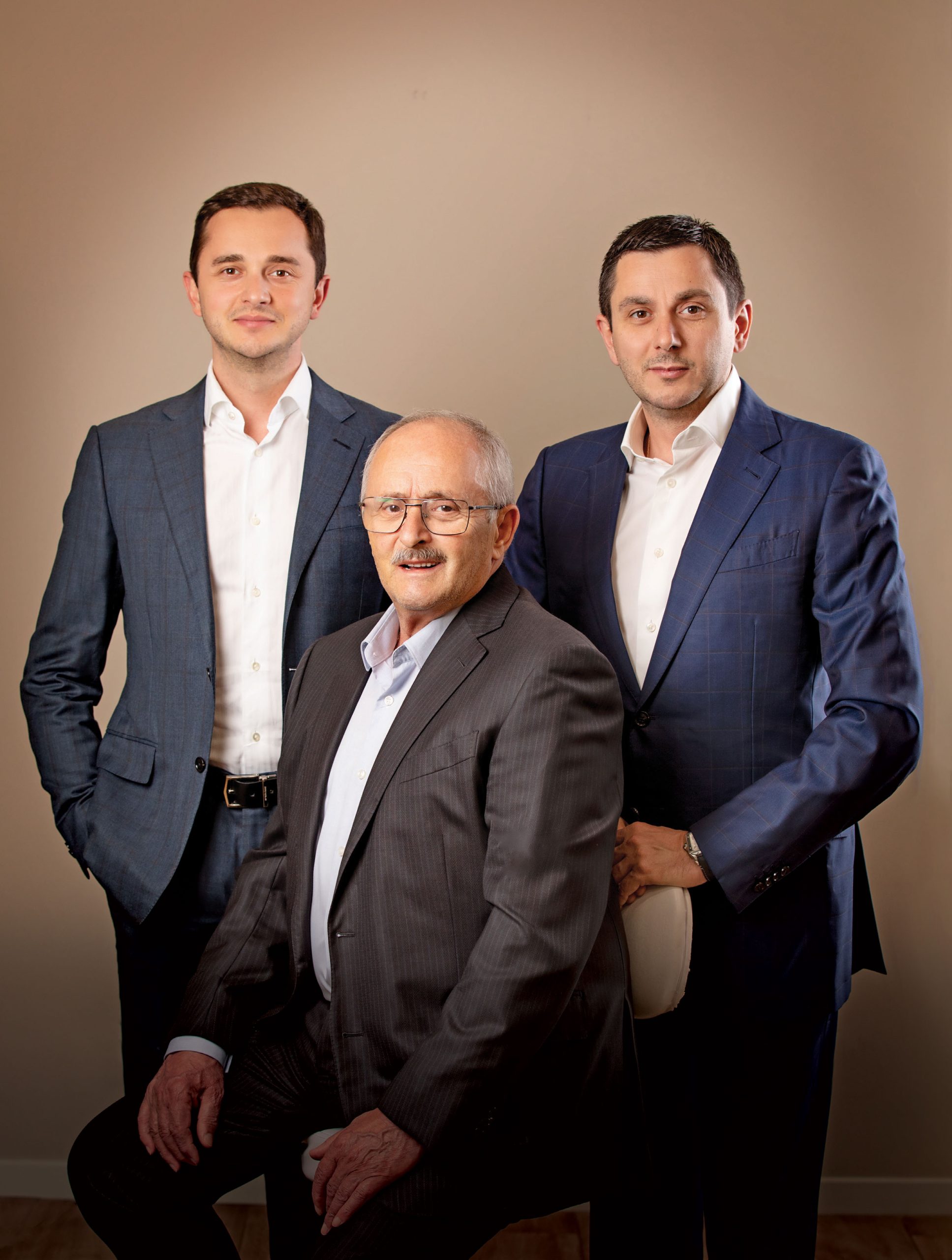
When did you begin developing the concept of Aptos threads?
Dr. Marlen: Major procedures in plastic surgery involve dissections, bleeding, complications, and sleepless nights. Many patients avoid surgery due to fears of the operation, anesthesia, and the long recovery process. I have always felt comparable results could be achieved more efficiently, and I have seriously considered this since the eighties.
Standing in line at a deli one day, I saw a large block of butter being sliced with wire. It struck me that if wire could slice butter, it might also work on human fat, which is similar in consistency. As I was a guitar player, I took a thin string and a medical needle and easily cut through a large piece of pork. This experiment convinced me that the method could be applied to plastic surgery. No one in the world used wire for dissecting, and by the late eighties, I began to introduce this method.
What was the initial reaction? How did the idea evolve over time?
Dr. Marlen: Georgian traumatologists, general surgeons, and burn specialists all showed interest. Interest was even greater when I moved to Russia, where I defended my thesis on this method. Since the early nineties, I have wanted to perform facelifts with minimally invasive aesthetic surgeries.
There was a newspaper in the Soviet Union, Zarubezhom, which published foreign articles. It was the only way for Soviet people to learn about developments in other countries. In one issue, I read about an Egyptian mummy with gold threads embedded in its face, indicating that the Egyptians used these threads for skin rejuvenation. Spanish doctors also started using these threads. I speculated that these threads had some construct to stay in place after implantation because smooth threads tend to migrate. I liked the idea but then forgot about it.
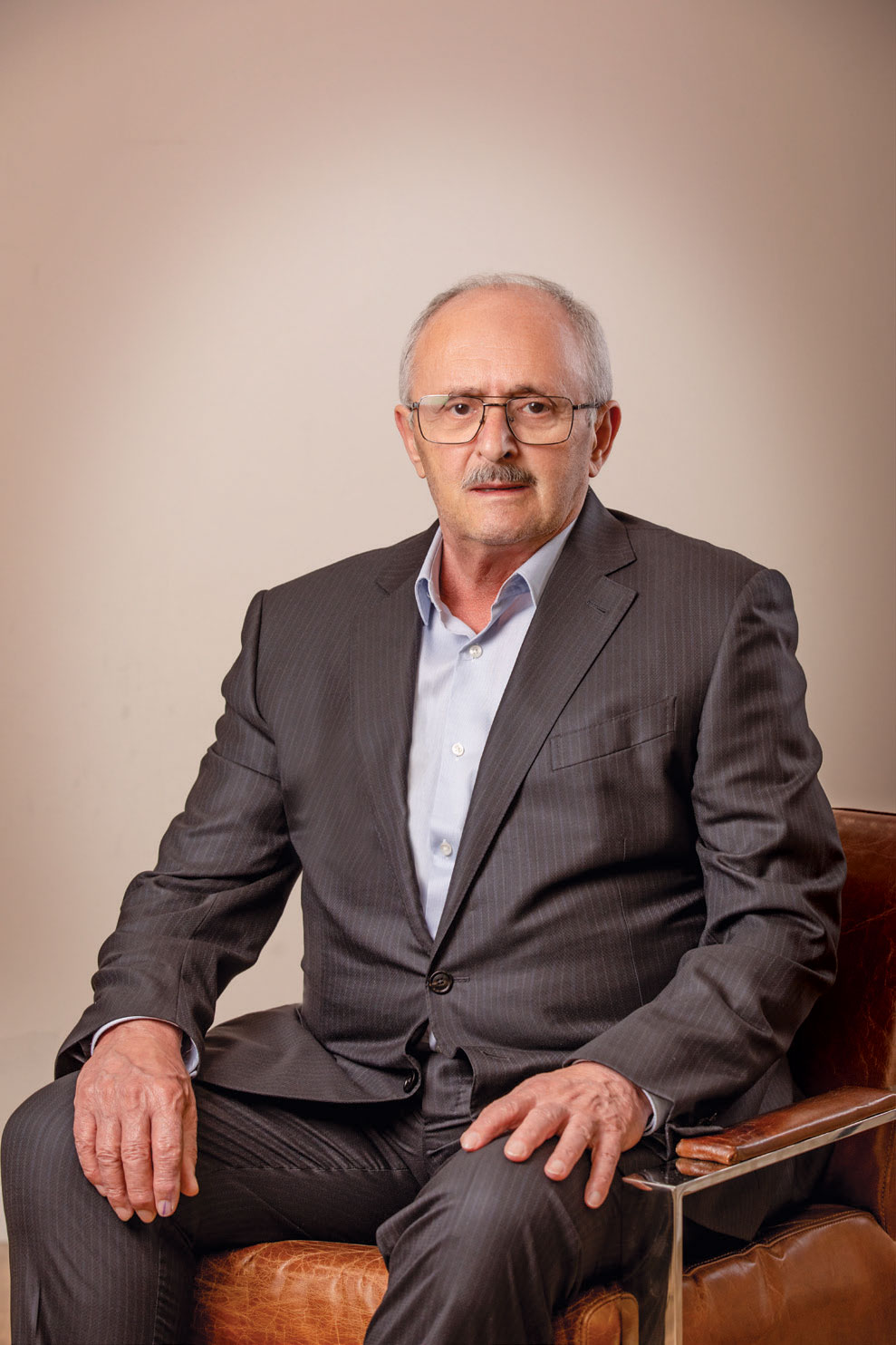
After moving to Moscow, my colleagues often invited me to perform operations in their clinics. Once, the head of the plastic surgery department at the Vishnevsky Institute told me that he was planning to import gold threads and offered to demonstrate the procedure to me. This reminded me of that newspaper article. When I saw that the threads were smooth, I questioned how they stayed in place. He replied that while they might not remain in place, they still produced results.
I recalled the idea I had in mind while reading the newspaper, although I had not shared these thoughts with anyone. I took a brolene thread used for sewing skin and made cuts on it under a magnifying glass. If you insert the thread under the skin, it goes in easily but does not come out easily when pulled back. I passed the slotted thread through a washing sponge and realized I had come up with something significant.
I made several pieces, sterilized them, and tested the first thread on my shoulder. After two weeks with no problems, I tried it on others, including my wife, a nurse, and a sanitary worker. The method worked every time. I then started using the threads on patients for various issues, consistently achieving good results. This success led me to think about production, and I eventually invented a machine to make slits on the thread.
What challenges did you encounter, and how did you successfully overcome them to implement the idea?
Dr. Marlen: In the beginning, while in Moscow, I faced a lot of skepticism. Hardly anyone supported me except for two or three doctors. They questioned my method, saying, “You are a serious plastic surgeon, Marlen. What are you doing?” However, persistence paid off. I published articles and attended international conferences to spread the word. At these congresses, foreign doctors immediately grasped the idea and embraced it. Soon, I was traveling three times a month, visiting 56 countries multiple times. I taught doctors there, though some even stole the idea and implemented it in their countries.
As we grew stronger, my children supported me; they studied medicine, became surgeons, and joined me in the operating room from an early age. They learned the craft firsthand. Konstantin became a surgeon, while George showed exceptional talent in management.
By 2007, we decided to return to Georgia, as stability had been restored, and we no longer faced the threat of street crime. Many Georgians had settled in Moscow, but our hearts were always set on returning home. It was around this time that we acquired the Total Charm building.
What makes this method unique, and what is the origin of the name Aptos?
Dr. George: The main goal of aesthetic medicine is to maintain a youthful appearance for patients. Traditionally, there are two approaches: surgical and injection-based. Previously, these were the only options. My father bridged this gap with specially designed threads. Before, extensive surgeries were required to tighten sagging tissues. Now, with threads inserted under the skin, the process is much simpler. It takes only 15-20 minutes without needing surgery, anesthesia, or long-term rehabilitation. Tissue sagging, called ‘ptosis’ in Latin, inspired the name Aptos – our threads are antiptosis.
In which countries are you represented, and how many types of products do you manufacture?
Dr. George: Today, we export to 100 countries, establishing us as unparalleled in Georgia for such a global reach. We have distributors and partners in most of these countries who sell our products. We have operations in Germany, Russia, and Georgia and offices in 17 countries.
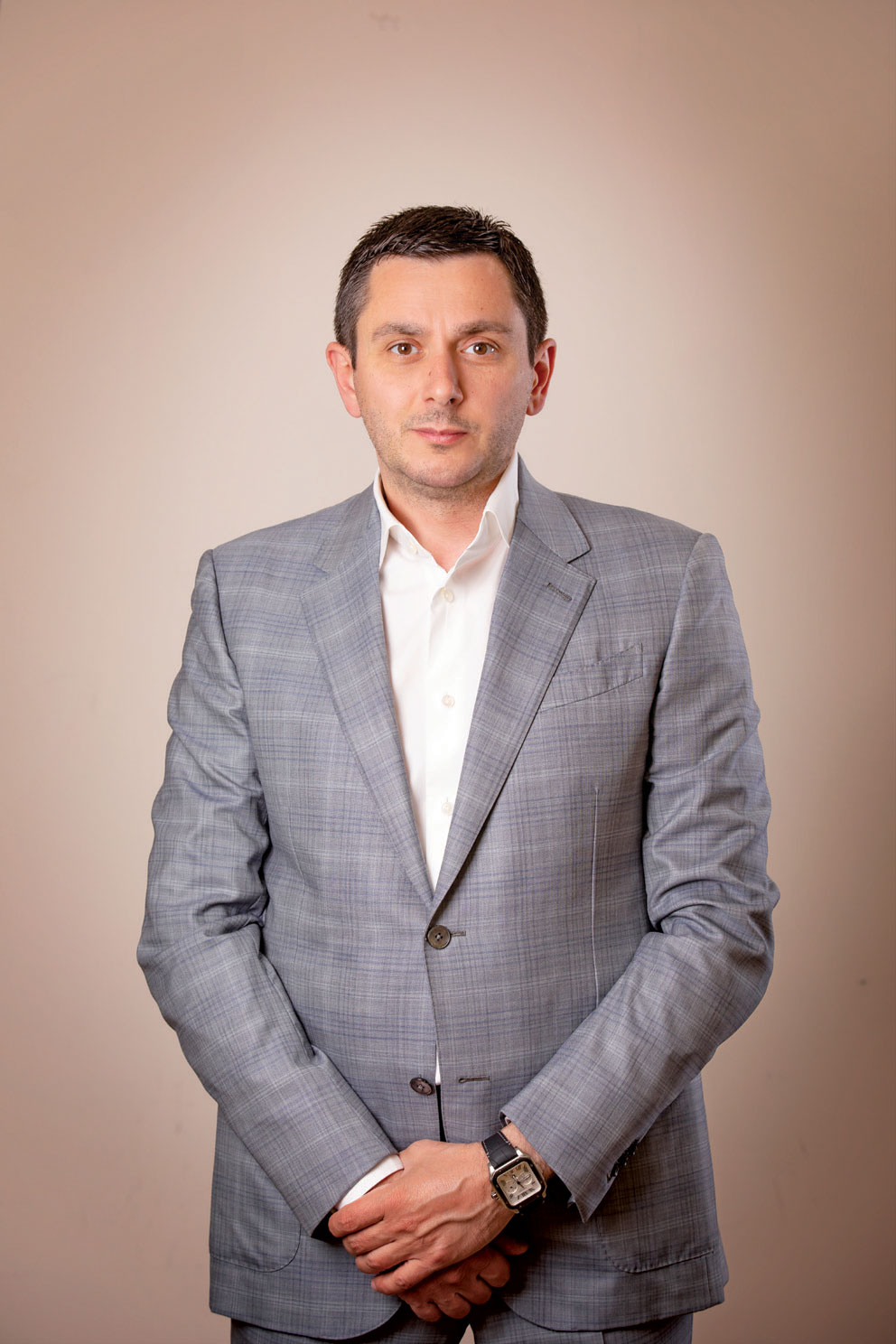
Brazil has become a key market for us in the last two years. We entered just a year ago, but registration there was challenging and took us five years. Globally, Brazil is the third-largest market for aesthetic medicine after the U.S. and China. We are working on registration in China and have already received FDA approval in the U.S., where we will enter the market soon.
We produce over 30 products to tighten the face and other body parts. Some threads can change the shape of the nose and ears. They come in two types: absorbable and non-absorbable. Non-absorbable threads are used for long-lasting results with stable fixation. If the patient prefers to avoid even minor surgical interventions, we use absorbable threads that dissolve entirely in the body after two years, allowing for repeated procedures.
Could you tell us about your innovative new product, the fourth-generation thread Namica?
Dr. George: We have improved our threads with each generation, and Namica represents our latest advancement. It is a unique fourth-generation product with no global equivalent. We added hyaluronic and polylactic acids, which are released during threading and rejuvenate damaged tissues. We introduced Namica last October, and this technology paves the way for creating other threads. This is just the beginning.
Aptos established the first aesthetic medicine enterprise in the country. Previously, your manufacturing was based in Germany. What motivated the decision to shift production locally?
Dr. George: Until the late 2000s, we lived in Russia and were often identified as Russian doctors despite always emphasizing our Georgian roots. At that time, Georgia was relatively unknown globally. So, in 2004, we established the company in Georgia. While we still have offices and production in Germany, our products return to Georgia for export. Although this complicates the process and raises the costs, our goal was to highlight our Georgian identity, and we achieved that.
In the plastic surgery industry, Aptos is well-known, and people know Georgia because of us. We have been producing and distributing surgical caps with our company’s logo and the Georgian flag for several years, exporting over 60,000 Georgian flags worldwide in this manner.
Dr. Marlen has also introduced the concept of a new surgical suture material – Aptos Suture. Can you tell us more about this product and whether there are plans to export it outside Georgia?
Dr. George: We introduced Aptos Suture in Georgia last year. Unfortunately, this region lacks suture material manufacturers, unlike America, Europe, China, and Korea. Georgia faces issues with this product – the quality is extremely poor or too expensive for the market. Therefore, we decided to produce Aptos Suture locally to provide a high-quality yet affordable option for Georgians. The price of this product is competitive with low-cost alternatives, and its quality rivals that of high-quality American sutures because we use materials from the most dependable Japanese and German manufacturers. Producing in Georgia allows us to sell the material at a lower price.
The 18th International Medical Congress Kolkhida in Plastic Surgery and Dermatology will be held in Georgia this July. Why is this event significant?
Dr. Konstantin: Georgia has never had an aesthetic medical conference; we always aspired to organize one. The first conference was in 2007, with about 120 attendees from 40-50 countries. This summer, we are hosting it for the eighteenth time, expecting around 1,500 doctors from numerous countries. We anticipate this to be the largest plastic surgery conference ever held. Such congresses are crucial for developing Georgian doctors, enhancing the competitiveness of the Georgian market, attracting new companies, and introducing new products. It may also prompt the Ministry of Health to adopt smarter regulations. Currently, no one controls aesthetic surgery, and procedures are conducted even in beauty centers. These conferences highlight that only qualified doctors should perform such procedures. All Georgian plastic surgeons must now participate in these conferences to accumulate points and maintain their licenses.
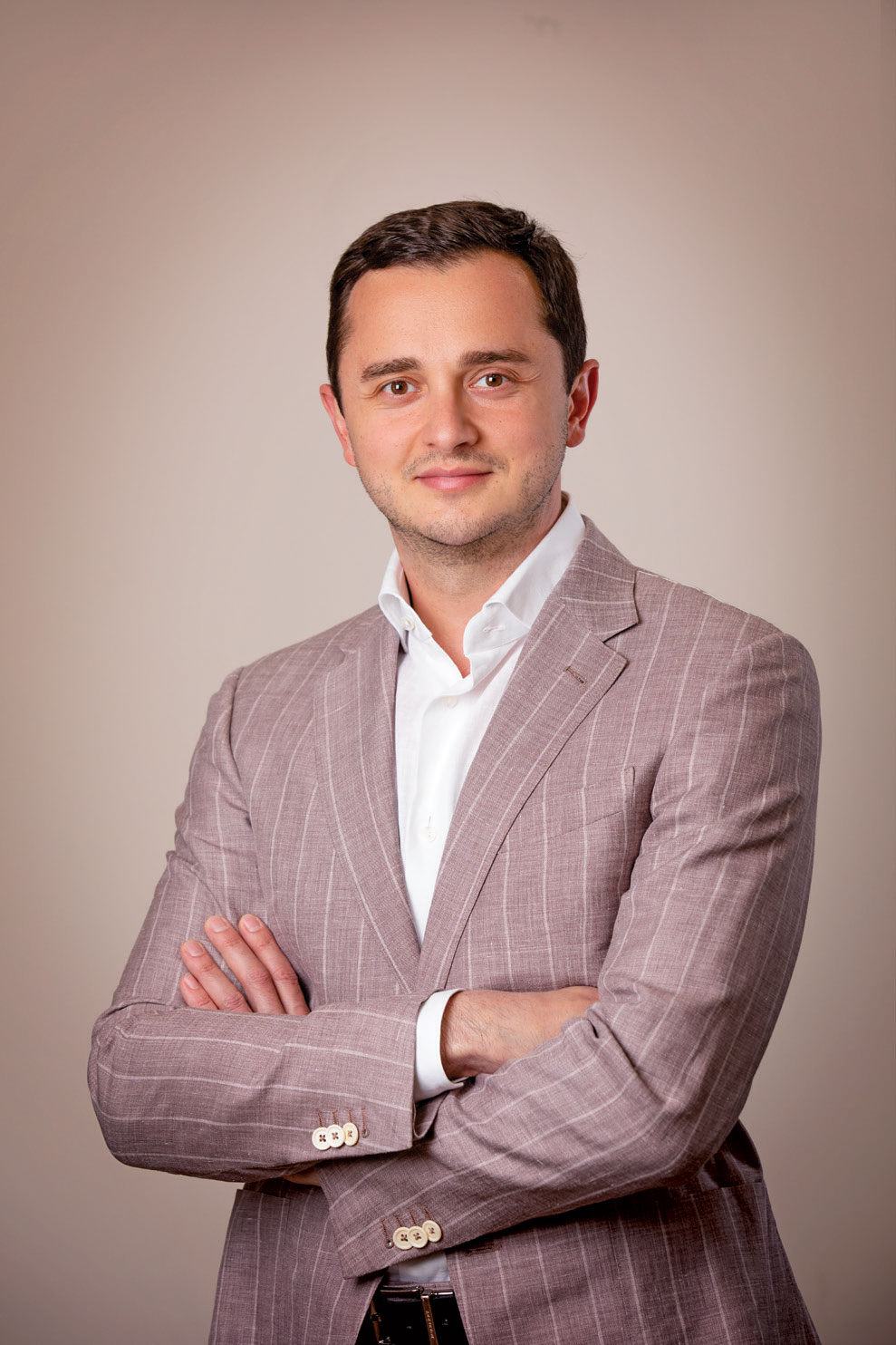
What is the current state of plastic surgery in Georgia, and how intense is the competition?
Dr. Konstantin: The competition in plastic surgery is not very intense, although demand is high. All good surgeons have waiting lists – some up to a year or two. There are not many plastic surgeons, and it takes up to 12 years of study with limited residency spots. Sometimes, there are 50 applicants for one place. In Georgia, plastic surgery is considered general surgery, and operations requiring anesthesia must be performed in a hospital. This decision, made last year, led to the closure of several good clinics, although we had planned accordingly. In dermatology, particularly for injections, there is no regulation over who performs procedures or where they are done. This lack of oversight has led to severe complications and even deaths. The state should be interested in and pay attention to this issue, but it is a global problem, not just a Georgian one.
How important is training new specialists for you?
Dr. Konstantin: We have recently trained several excellent young Georgian surgeons and expanded our staff at Aptos. They frequently attend conferences and training courses worldwide. I have six assistant surgeons, several of whom have just graduated. Sharing knowledge with young people brings me immense joy, as their success is also my success. Aptos has developed robust online training, including live broadcasts and cadaver courses at Total Charm, providing practical experience.
Our clinic, Total Charm, has signed memorandums with Tbilisi State University, Batumi BAU International University, and Grigol Robakidze University to accept students for teaching and examinations. This year, we launched a plastic surgery residency program with four new residents at our clinic. Aptos also conducts research with various universities, continuing to advance in this field.
How do you envision the future of aesthetic medicine, and what role do you see Aptos playing in it?
Dr. Konstantin: Aesthetic medicine is evolving rapidly. For several years, the pharmaceutical business experienced stagnation as the market became saturated, leading companies to focus on the aesthetic sector, which they see as highly promising and worthy of investment. Aptos is a pioneer in thread-based aesthetic medicine. We set the trends in this field, with analogs of our products appearing elsewhere after a few years. While others are busy creating copies, we continuously take new, innovative steps, thereby maintaining our leadership and advancing step by step.
What is the future of Aptos?
Dr. George: I see Aptos maintaining leadership in its field. While we are already at the forefront, there is ample room for development. We have diversified beyond threads to include facials, fillers, surgical sutures, and more. The creation and expansion of new products are well underway. We are present in Europe, South America, and the Middle East, with several untapped large markets. We are currently awaiting registrations in China, America, Canada, and Korea.
Dr. Konstantin: From a business perspective, Aptos aims to enter new markets and expand its network of clinics and offices. The company has a distribution division and is the exclusive importer of several renowned brands. I believe we have reached the peak in thread configurations, but the material of the threads has significant potential. A new direction is developing drugs embedded in the thread, allowing us to use them not only for lifting but also to introduce additional rejuvenating materials into the body and skin. Aptos threads will always be at the apex, unmatched by any other.
